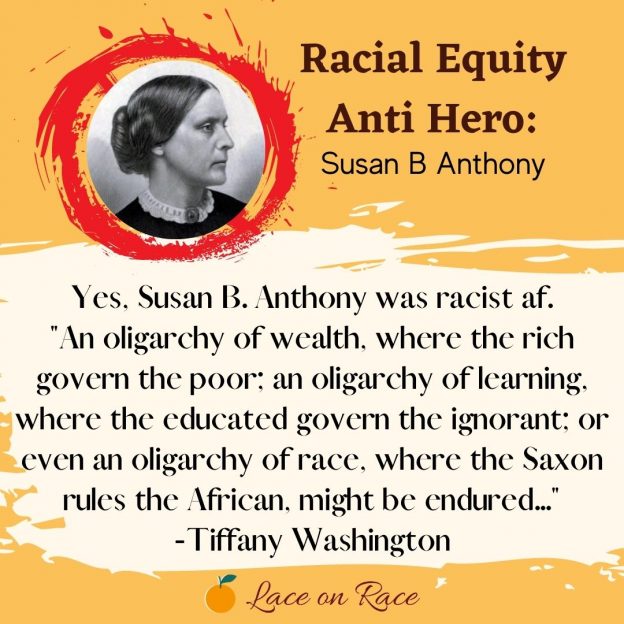Intro to Series: laceonrace.com/2021/02/04/racial-equity-anti-hero-series/
Tiffany Washington talks her shit from the backwoods of Alabama. Her work appears on Facebook because she’s already been rejected by The Root.
Today, in Black History, we remind you that Susan B. Anthony was racist.
Yes, Susan B. Anthony was racist af.
“An oligarchy of wealth, where the rich govern the poor; an oligarchy of learning, where the educated govern the ignorant; or even an oligarchy of race, where the Saxon rules the African, might be endured; but this oligarchy of sex, which makes father, brothers, husband, sons, the oligarchs over the mother and sisters, the wife and daughters of every household; which ordains all men sovereigns, all women subjects, carries dissension, discord and rebellion into every home of the nation.” -SBA
*This is what I’m doing every day of black history month this year: going out of my way to tell you which heroes of white America were actually racist bastards.*#TodayinBlackHistory
-Tiffany Washington

Leave a Reply